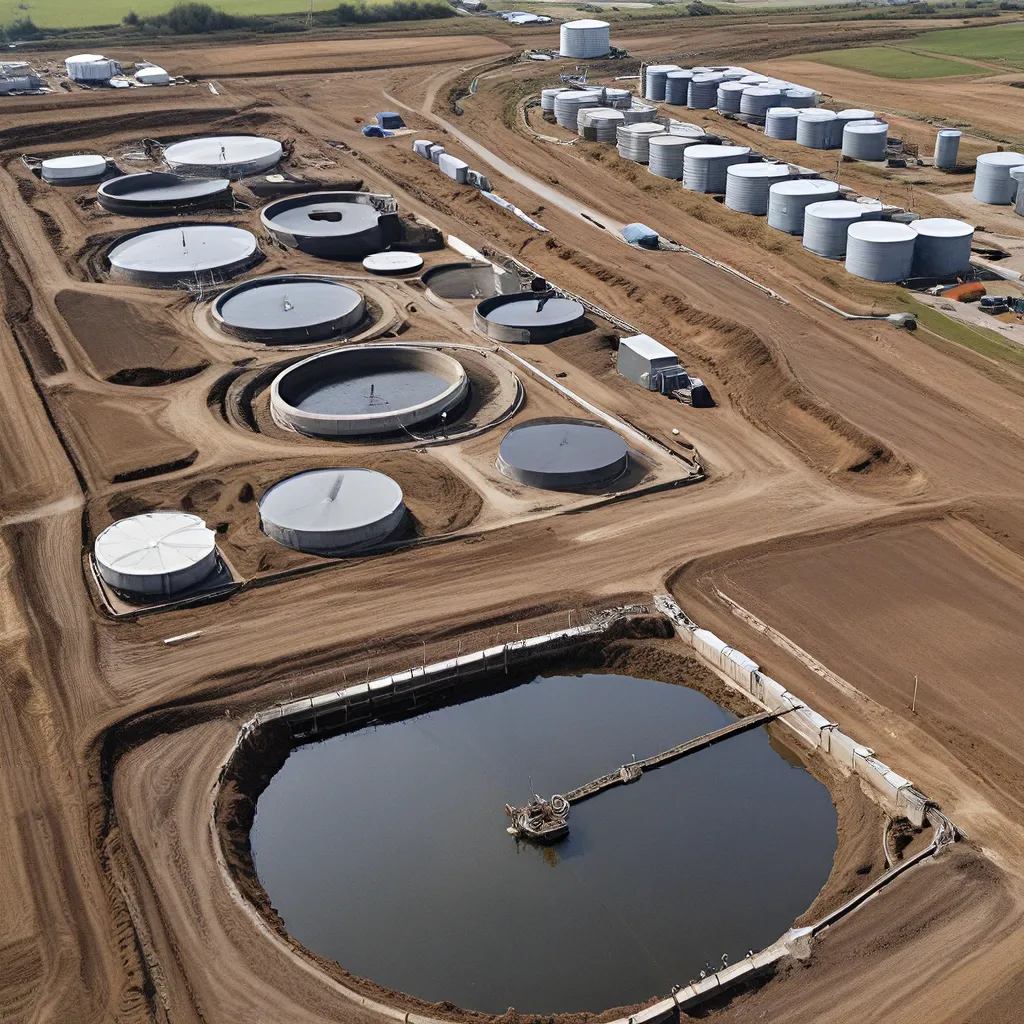
As an environmental enthusiast, I’ve always been fascinated by the innovative approaches to sustainable waste management. One technology that has piqued my interest recently is anaerobic digestion and its potential applications in the realm of wastewater treatment. Let me take you on a journey to explore this intriguing process and how it could revolutionize the way we handle sludge generated from our water treatment facilities.
Understanding Anaerobic Digestion
Anaerobic digestion is a biological process that occurs in the absence of oxygen, where microorganisms break down organic matter and convert it into biogas, a renewable energy source. This process has been employed in wastewater treatment for decades, but its true potential is still being uncovered.
Recent studies have shown that anaerobic digestion can not only effectively reduce the volume of sludge but also generate valuable byproducts, such as methane-rich biogas and nutrient-rich digestate, which can be used as a fertilizer. This approach aligns perfectly with the principles of the circular economy, where waste is minimized, and resources are continuously recycled and reused.
Maximizing Efficiency in Sludge Management
Traditionally, wastewater treatment plants have relied on conventional methods, such as aerobic digestion, to manage the sludge generated during the treatment process. However, as the demand for more sustainable and cost-effective solutions grows, the spotlight has shifted towards anaerobic digestion.
One of the key advantages of anaerobic digestion is its energy-producing potential. By capturing the biogas generated during the process, wastewater treatment facilities can reduce their energy consumption and potentially become self-sufficient, or even net energy producers. This not only cuts operational costs but also aligns with the growing global push for renewable energy and reduced carbon emissions.
Emerging research has also highlighted the ability of anaerobic digestion to recover valuable nutrients from the sludge, such as nitrogen and phosphorus. These nutrients can then be repurposed as fertilizers, contributing to the sustainability of agricultural practices and closing the loop in the waste management cycle.
Overcoming Challenges and Unlocking Potential
Of course, the implementation of anaerobic digestion in wastewater treatment is not without its challenges. Optimizing the process parameters, managing the complex microbial communities, and ensuring consistent biogas production are just a few of the hurdles that researchers and wastewater treatment professionals are working to overcome.
Corresponding authors have highlighted the importance of technological advancements, process optimization, and interdisciplinary collaboration in unlocking the full potential of anaerobic digestion. By integrating cutting-edge research and practical expertise, the industry is steadily making strides towards improving efficiency, increasing biogas yields, and maximizing the overall sustainability of wastewater treatment operations.
Embracing the Future of Sludge Management
As I delve deeper into the world of anaerobic digestion, I can’t help but feel a sense of excitement and optimism. This technology holds the promise of transforming the way we manage wastewater sludge, turning a waste product into a valuable resource with environmental and economic benefits.
Imagine a future where wastewater treatment facilities are not only eco-friendly but also self-sustaining, generating their own energy and contributing renewable resources to the circular economy. This is the vision that anaerobic digestion is helping to bring to life, and I’m eager to see how the industry continues to innovate and push the boundaries of what’s possible.
Of course, the journey towards this future is not without its challenges, and ongoing research and collaboration will be crucial in overcoming the obstacles and realizing the full potential of this technology. But with the dedication and ingenuity of researchers, engineers, and wastewater treatment professionals, I’m confident that Alpha Wastewater and other industry leaders will play a pivotal role in shaping the future of sustainable sludge management.
So, if you’re as fascinated by the potential of anaerobic digestion as I am, I encourage you to explore further and stay informed on the latest developments in this rapidly evolving field. Who knows? The next breakthrough could be just around the corner, and Alpha Wastewater might be the key to unlocking it.